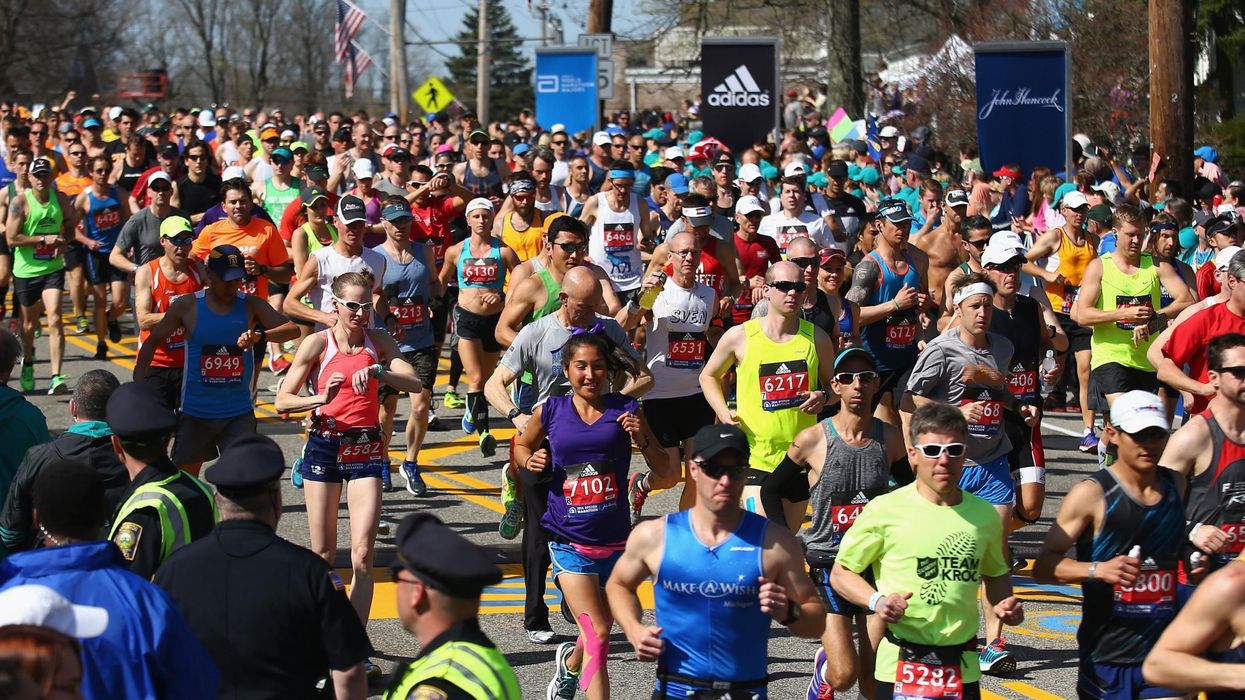News
Mimi Launder
Apr 10, 2018

Picture:
Getty Images / Tim Bradbury / Staff
Transgender runners will be able to compete as their self-identified gender in the Boston Marathon on Monday, 16 April.
This is a welcome step forward for human rights, but not a new one: trans people have been quietly running the race for "several years", the Boston Athletic Association (BAA) told NPR.
The BAA has no specific policy on transgender runners taking part in the word-famous race, but this year there has been a heated debate following a profile in Canadian Runningof three transgender women who signed up for the race
Concerns were raised by readers around the perception of 'fairness' and how testosterone could potentially give trans women runners a physical advantage.
The thought of registering for the competition under her identified gender is what inspired transgender activist Amelia Gapin to undergo the surgery, she told Canadian Running.
At least five openly transgender women will take part in the iconic 26.2-mile race through Boston this year - and it means more to them than cisgender people might be able to imagine.
The BAA has said it would rather not throw yet more hurdles in the path of the transgender community, with its chief Tom Grilk telling Washington Post:
We take people at their word. We register people as they specify themselves to be.
Members of the LGBT+ community have had a lot to deal with over the years and we'd rather not add to that burden.
But many races - including Boston, New York and Chicago - require registrants to show a government ID with the same name and genders as their application forms to get a bet a bib number, an obstacle for trans athletes who haven't legally changed their personal information.
Typically, people who were assigned male at birth have had a greater struggle registering to elite athletic events under their self-identified gender, and may require surgery or medication to lower their testosterone levels.
The Olympics allowed athletes to compete without gender confirmation surgery after revisiting its guidelines ahead of the 2016 Rio Games, but required female transgender registrants to prove their testosterone levels did not exceed a certain amount.
Perhaps critics concerned about fair competition when trans women run as women should turn their attention to the dehydration, reduced stamina and dizziness caused by treatments such as testosterone blockers.
More: The first woman to officially run the Boston marathon did it again 50 years later
More: We asked 14 trans activists how cis people can be better allies in 2018
Top 100
The Conversation (0)













